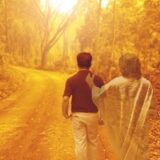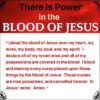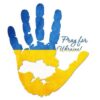Pope Francis left Bahrain on Sunday after a four-day trip that culminated with a visit to the Gulf’s oldest Catholic church, where he told bishops, priests and nuns to remain united as they ministered to the faithful in the majority Muslim area.
The last event was at Sacred Heart church, built in 1939 on land donated by the then-ruler, putting Bahrain on the road to becoming one of the most accommodating countries in the region for non-Muslims.
At the end of the church service, Pope Francis thanked King Hamad bin Isa Al Khalifa for Bahrain’s “exquisite hospitality”.
King Hamad and Sheikh Ahmad al-Tayyeb, Grand Imam of Egypt’s Al-Azhar mosque and university who was also in Bahrain, bid good bye the pontiff at the airport before he left for Rome, state TV showed.
Thousands thronged the national stadium on Saturday to attend the Holy Mass led by Pope Francis as he marked his historic visit to Bahrain this week.
The Pope is making his 39th Apostolic Journey outside of Italy, having accepted the invitation to visit the country extended by the King of Bahrain, Hamad bin Isa Al Khalifa and by the local Church.
Bahrain’s Catholic community numbers around 160,000 in a country of around 1.5 million – most are workers from the Philippines and India, pilgrims from Saudi Arabia and other neighbouring countries too attended the service.
In a world run by narrow interests and war, the Pope said religious leaders must set a good example, and commit themselves to encouraging and assisting the wounded human family.
This theme was at the heart of Pope Francis’ address at the Bahrain Forum for Dialogue on 4 November in the Al-Fida’ Square of the Sakhir Royal Palace in Bahrain’s capital of Manama.
With King Hamad bin Isa Al Khalifa by his side, Pope Francis also urged the Arab Gulf nation to ensure “safe and dignified” working conditions for its immigrant labourers, who have long faced abuse and exploitation in the island’s construction, oil extraction and domestic service industries.
Francis spoke closed a forum on East-West dialogue promoted by the king of the Gulf country where, unlike Saudi Arabia, Christians are allowed to practice their faith publicly in churches.
The visit continues the pope’s policy of improving ties with the Islamic world following a historic visit to Abu Dhabi in 2019, the first by any pope to the Arabian peninsula.
Pope Francis has visited about 10 predominantly Muslim states since his election in 2013.
Francis, who suffers from a knee ailment that forces him to use a wheelchair and cane, wove his speech around the role of religions in promoting peace, disarmament and social justice.
“After two terrible world wars, a cold war that for decades kept the world in suspense, catastrophic conflicts taking place in every part of the globe, and in the midst of accusations, threats and condemnations, we continue to find ourselves on the brink of a delicate precipice and we do not want to fall,” he said in a gleaming marble courtyard of the royal palace.
Apparently referring to Ukraine, Francis condemned a situation where “a few potentates are caught up in a resolute struggle for partisan interests, reviving obsolete rhetoric, redesigning spheres of influence and opposing blocs”.
Francis, who supports a total ban on nuclear weapons and has often condemned the global arms trade, said religious leaders cannot support wars – in apparent reference to Russian Orthodox Church Patriarch Kirill, who has given enthusiastic backing to Russia’s invasion of Ukraine and who the pope has implicitly criticised before.
Speaking before the pope, King Hamad bin Isa Al Khalifa called for unanimity in stopping the war between Russia and Ukraine, and a “serious dialogue for the good of all humanity”.
The pope echoed the call, as did the third speaker, Sheikh Ahmad Al Tayyeb, Grand Imam of Egypt’s Al-Azhar mosque and university, who signed the 2019 “Human Fraternity” document, a landmark manifesto on the role of religions in seeking peace.
Francis, without naming any countries, also condemned the financing of terrorism.
On Friday afternoon, Francis addressed Bahrain’s Muslim Council of Elders in the courtyard of the royal mosque, where he praised those Muslim leaders who “see in extremism a danger that corrodes genuine religion” and called for more dialogue between Islam and other religions.
“We need to put a future of fraternity ahead of a past of antagonism, overcoming historical prejudices and misunderstandings in the name of the One who is the source of peace,” he said.
A small boy recited a verse from the Koran and a girl read a passage from the Old Testament.
Francis later presided at an ecumenical prayer attended by members of various Christian denominations in the cathedral of Our Lady of Arabia, the largest church on the Arabian peninsula and one of the two churches serving Bahrain’s tiny Catholic community of about 160,000.
The cathedral was built on land donated by the king and one of the monarch’s sons welcomed him to the church.
Bahrain is home to the Gulf’s first Catholic Church, the Sacred Heart parish, which opened in 1939, as well as its biggest one, Our Lady of Arabia Cathedral. The church, with a capacity of 2,300, opened last year in the desert town of Awali on land gifted to the church by King Hamad bin Isa Al Khalifa. In fact, the king presented Francis with a model of the church when he visited the Vatican in 2014 and extended the first invitation to visit.
Pope Francis also urged Bahrain authorities to renounce the death penalty and ensure basic human rights are guaranteed for all citizens.
Shiite opposition groups and human rights organisations had urged Francis to raise human rights violations against the majority Shiites by the Sunni monarchy. They urged him to call for an end to the death penalty and request to visit the country’s Jau prison, where hundreds of Shiite activists have been jailed. Human Rights Watch and Amnesty International have repeatedly denounced the use of torture in prisons, as well as forced confessions and “sham trials” against dissidents.
“We are writing to appeal to you as the families of twelve death row inmates who are facing imminent execution in Bahrain,” read a letter from the families to Francis released this week by the Bahrain Institute for Rights and Democracy. “Our family members remain behind bars and at risk of execution despite the clear injustice of their convictions.”
Francis has changed church teaching to declare the death penalty inadmissible in all cases. He has regularly visited prisoners during his foreign trips, though no such prison visit is planned in Bahrain.
During his address in the Middle Eastern Gulf nation, Pope Francis condemned war, made strong appeals for true religious freedom, and highlighted “urgent educational priorities” regarding recognition of women, protecting children’s fundamental rights, taking action, and the concept of citizenship.
“We are living at a time when humanity appears much more divided than united. After two terrible world wars, a cold war that for decades kept the world in suspense, catastrophic conflicts taking place in every part of the globe, and in the midst of accusations, threats, and condemnations,” Pope Francis said, “We continue to find ourselves on the brink of a delicate precipice and we do not want to fall.”
He deplored the dramatic, even “childlike,” scenario around us where we play with fire, missiles and bombs, spreading death and hatred, and warned against bitter consequences “if we continue to accentuate conflict instead of understanding,” and “persist in stubbornly imposing our own models and despotic, imperialist, nationalist, and populist visions.”
He called for listening to the voice of the poor and for everyone to come together.
The 85-year-old Pope, who has been using a wheelchair for several months because of strained knee ligaments, said he was “in a lot of pain” as he flew to the Gulf. For the first time, he greeted journalists travelling with him seated rather than walking through the plane’s aisle.
The Holy Father expressed his gratitude for the invitation to the dialogue forum, which was organised under the patronage of the King of Bahrain, on the theme “East and West for Human Coexistence.”
“Religious liberty inside Bahrain is perhaps the best in the Arab world,” said Bishop Paul Hinder, the apostolic administrator for Bahrain and other Gulf countries. “Even if everything isn’t ideal, there can be conversions (to Christianity), which aren’t at least officially punished like in other countries.”
(Agencies; Picture Courtesy: Reuters)













